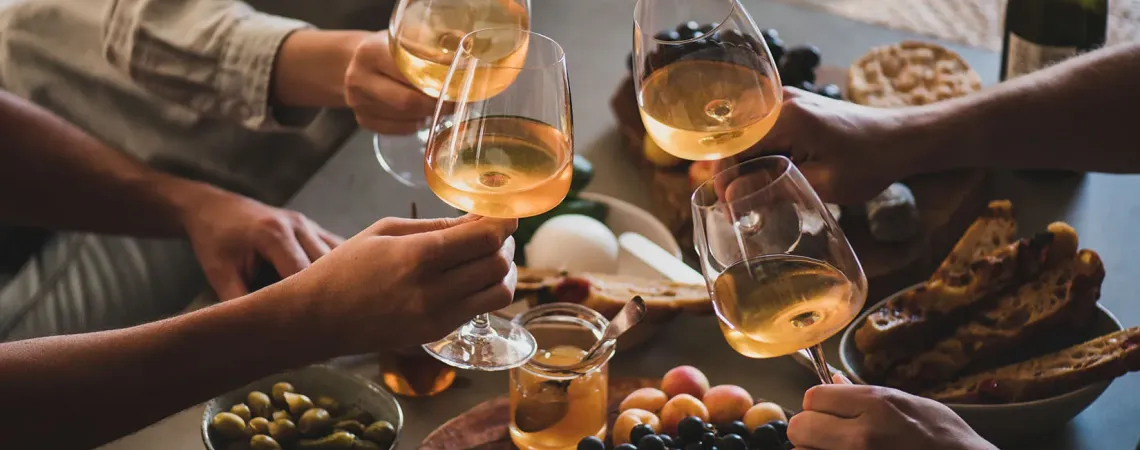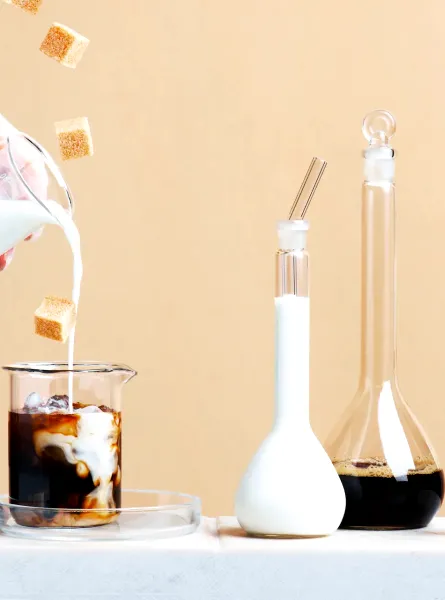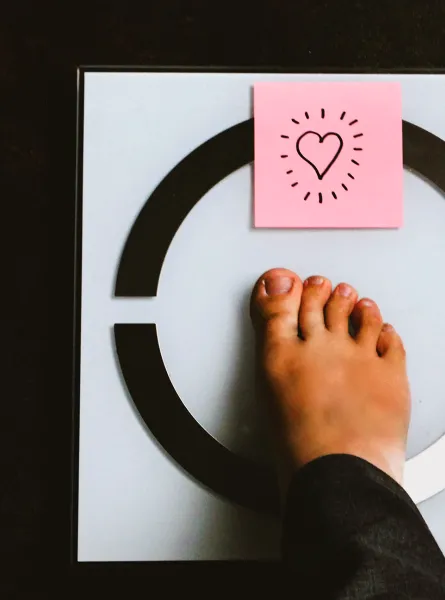
When it’s time to celebrate, it's entirely possible to raise a glass while keeping your health in mind. If you're looking to reduce your calorie intake without sacrificing the enjoyment of a good wine, there are several low-calorie wine options available. Here’s a selection of 10 wines that are low in alcohol and sugar, allowing you to savour each sip in moderation.
Why Do Some Wines Have More Calories Than Others?
The number of calories in a wine is primarily influenced by its alcohol and sugar content. The sweeter or higher in alcohol a wine is, the more calories it contains. For example, red wines often have more calories than white or rosé wines due to longer fermentation and generally higher alcohol content. It's important to consider these factors when choosing a wine.
Light Wine Options to Enjoy in Moderation
1. Natureo Blanc de Torres (Spain)
With only 0.5% alcohol, this white wine is de-alcoholized and offers fresh, fruity notes. It’s perfect for pairing with light salads and seafood.
Try it with a grilled fish and strawberry salad.
2. Jacob's Creek Low Sugar Moscato (Australia)
This Moscato offers a lighter option in terms of sugar and alcohol, with a fruity, fresh taste. It pairs well with light desserts and fruit.
A fruit tartare is a creative and perfect pairing for this wine.
3. Grand Sud Low Sugar Rosé (France)
For rosé lovers, this eco-friendly wine delivers fruity flavours while staying low in sugar and calories. It pairs perfectly with light and fresh dishes, such as this Mediterranean salmon salad.
4. Pelee Island Lighthouse Riesling (Ontario, Canada)
This Canadian white wine offers notes of green apple and citrus with low sugar and calorie content. Grown on Pelee Island, this Riesling is a great local option for those seeking a light wine to enjoy with fish or seafood dishes.
Pair it with an air-fried lemon-dill salmon dish.
5. L'Orpailleur Rosé (Quebec, Canada)
A local Quebec rosé, this wine is a great low-sugar option, perfect for summer appetizers. It’s slightly fruity with a nice acidity.
This spinach, radish, and strawberry salad would pair wonderfully with this rosé.
6. Torres Natureo Rosé (Spain)
Another de-alcoholized option, this rosé with notes of strawberries and raspberries is ideal for rosé lovers looking to moderate their alcohol consumption.
A goat cheese and fig butter board is a great pairing for this wine.
7. Vittori Trebbiano (Italy)
This Italian white wine contains less than 2 g/L of sugar, offering a light and crisp taste, perfect for pairing with seafood.
Try it with these cod cakes to complement the Italian wine.
8. Kim Crawford Sauvignon Blanc (New Zealand)
With a moderate alcohol level and low sugar content, this Sauvignon Blanc is refreshing with citrus notes. Perfect for dishes like grilled fish and spring rolls.
9. Saint-Roch-les-Vignes Côtes-de-Provence (France)
This low-calorie Provence rosé is ideal for those seeking a light, dry, and fresh wine, perfect for pairing with light summer dishes.
This vegetable spiral salad with apricots, bocconcini, and mint is a fresh vegetarian dish that pairs perfectly with this French wine.
10. Spritz de chez nous - Sparkling Cider (Quebec, Canada)
A local alternative to wine, this citrusy sparkling cider is low in calories and gluten-free, making it perfect for a light and festive aperitif.
This air-fried orange-rosemary haddock recipe is ideal for trying this low-calorie cider.
The Importance of Moderation
Excessive wine consumption can have negative effects on health, such as weight gain, cardiovascular diseases, or liver problems. Since alcohol is high in calories, it can also contribute to excess calorie intake when consumed in large amounts (1).
To take care of your health, Canadian guidelines on alcohol recommend limiting consumption as much as possible because drinking less is always better for your well-being (2).
Achieving Balance With the Help of Your Dietitian
In conclusion, it’s important to make informed choices when it comes to alcohol consumption. Whether you choose a dealcoholized white wine, a light rosé, or a sparkling Quebec cider, there are plenty of options to accompany your meals in moderation. Remember that the key lies in balance, and it is always possible to enjoy festive occasions while taking care of yourself.
If you're looking for personalized advice to moderate your alcohol intake or receive support in your weight loss journey, feel free to schedule an appointment with an TeamNutrition dietitian. We are here to help you find what works best for you.
References
- Izzo, L., Graziani, G., Gaspari, A., Di Minno, G., & Ritieni, A. (2019). Red wine consumption and cardiovascular health. Molecules, 24(19), 3626. https://doi.org/10.3390/molecules24193626
- Centre canadien sur les dépendances et l’usage de substances. (2023). Repères canadiens sur l'alcool et la santé. https://www.ccsa.ca/fr/conseils-outils-et-ressources/consommation-de-substances-et-dependance/alcool/reperes-canadiens-sur





